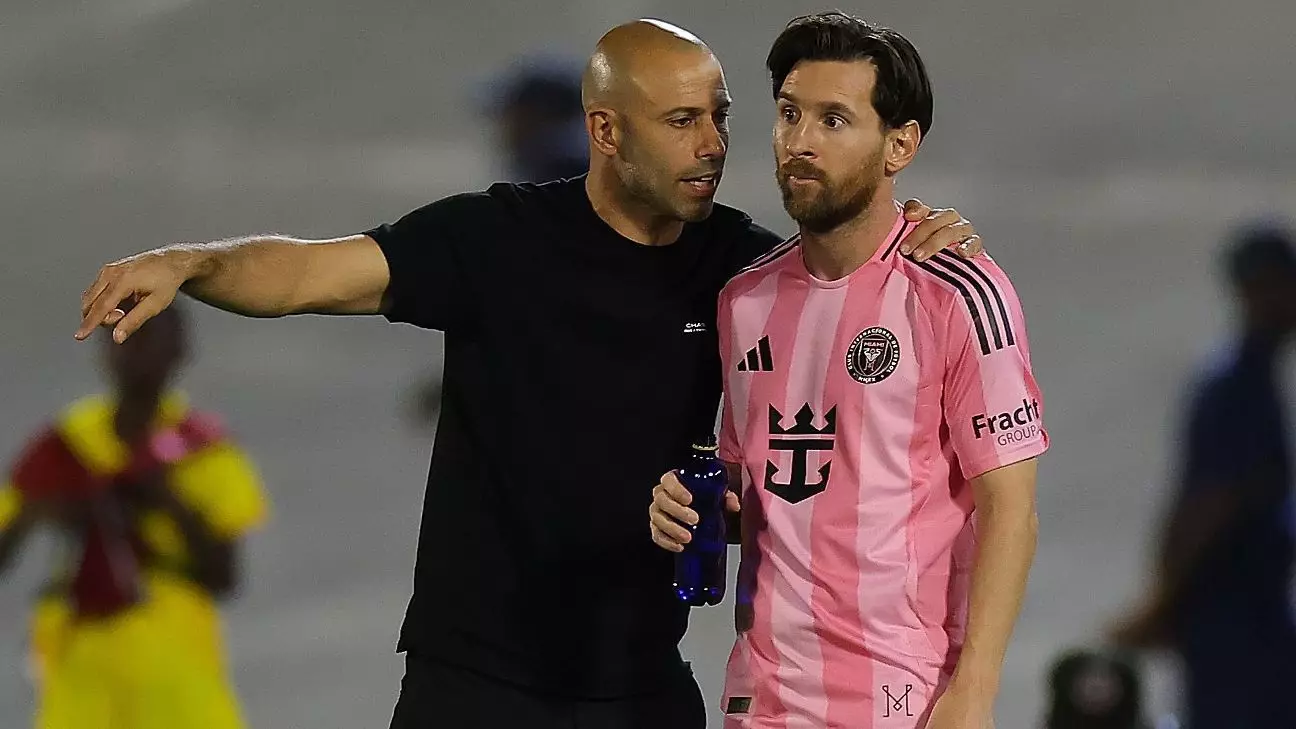Inter Miami’s head coach, Javier Mascherano, has recently provided insight into the delicate balance of maintaining Lionel Messi’s fitness during a demanding start to the 2025 season. The club faced the challenge of keeping the world-renowned athlete in peak condition while navigating the rigors of back-to-back matches. In an era where sports science plays an essential role in athlete management, rest and load management strategies are now more vital than ever, especially when it concerns a player of Messi’s stature. The decision to limit Messi’s minutes reflects a proactive approach that prioritizes long-term health over short-term gains.
Strategic Resting in Action
Mascherano’s method of resting Messi during crucial matches against Houston Dynamo, Cavalier FC, and Charlotte FC was met with some skepticism. Critics questioned whether the decision could lapse into negligence, but the coach remained firm in his belief that the plan was well-structured. By giving Messi a break, the aim was to alleviate any potential injuries that might arise from overexertion. This strategic resting appears to be a calculated gamble that underscores the importance of managing athletic workloads, particularly as teams face an increasingly congested schedule.
Analyzing the coach’s comments, it’s evident that Mascherano places immense value on sound decision-making backed by medical insights. The plan for Messi to play 30-35 minutes during a match in Jamaica was not reactionary but rather a testament to the foresight they had built into their season’s strategy. This systematic approach could serve as a blueprint for enhancing player longevity and optimizing performance amidst physical demands.
Open Communication with the National Team
In addition to tactical adjustments, the collaboration between Inter Miami’s medical staff and the Argentina national team doctors highlights an impressive level of communication that is often overlooked in professional sports. Mascherano’s remarks underscore the necessity of a seamless connection between club and country to ensure Messi’s wellbeing prior to the all-important CONMEBOL World Cup qualifiers. It’s a solid example of how inter-organizational relationships can play a crucial role in athlete care, setting the stage for better outcomes in international fixtures.
The Argentina national team, currently leading the qualifiers, stands to benefit from having their star player in optimal condition. With upcoming matches against formidable opponents like Uruguay and Brazil, Messi’s fitness could be the deciding factor in maintaining their dominant position. The dual priority placed on Messi’s club duties and national responsibilities illustrates the intricate balancing act that players must navigate.
Looking Ahead: Responsibility and Anticipation
As the Inter Miami squad prepares for their clash with Atlanta United, there remains an air of anticipation surrounding Messi’s involvement in the match. While Mascherano confirmed Messi’s travel with the team, fans are eager to see how the strategy of managing his minutes will play out on the field. This management is not just a tactic; it reflects a broader understanding of a player’s evolving needs in modern soccer. The emotional stakes in the world of professional sports make this delicate balancing act even more critical.
With athlete health being paramount, the decisions made today will influence the trajectory of Messi’s career and his contributions both domestically and internationally. In many ways, the success of these strategies will serve as a testament to the evolution of sports management, fostering a culture that prioritizes athlete health while amplifying performance on the world stage.

